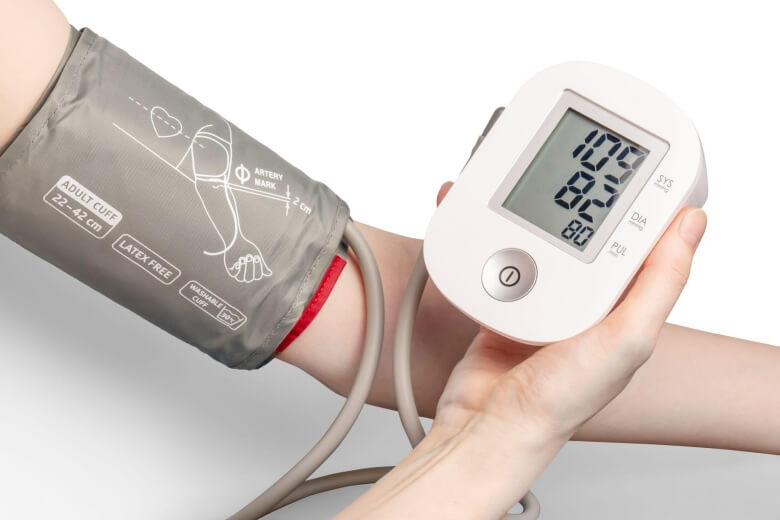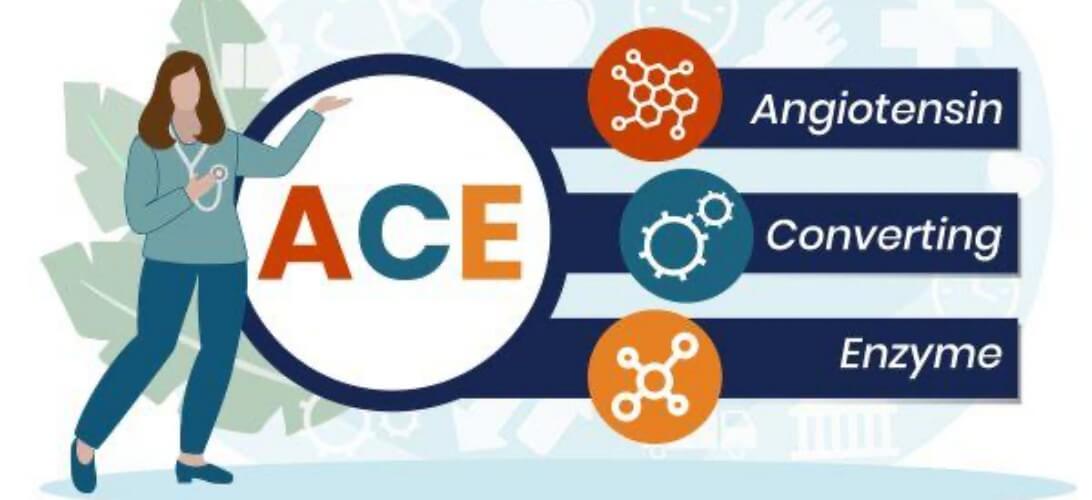Highlights
- ACE inhibitors are commonly used to treat heart disease, high blood pressure, and related problems like kidney disease and diabetic neuropathy.
- This class of drugs work by blocking an enzyme that tightens the blood vessels in response to low blood pressure.
- ACE inhibitors have relatively few side effects and are generally considered safe.
- You can find the lowest price for ACE inhibitors with BidRx.
Nearly half of American adults have high blood pressure, and for many of them, ACE inhibitors can help keep it under control.
ACE inhibitors are a class of medications used to treat cardiovascular problems, kidney disease, and other conditions impacted by high blood pressure. These drugs were introduced in the early 1980s, and today, millions of Americans take ACE inhibitors to stay healthy and prevent future heart conditions.
How Do ACE Inhibitors Work?
ACE stands for angiotensin-converting enzyme, which is a naturally occurring chemical that narrows the blood vessels. Low blood pressure signals the release of this enzyme, which triggers the process of increasing blood pressure and retaining fluid.
Normally, this helps keep blood pressure steady and supports healthy blood flow. But for people with cardiovascular conditions, constricted blood vessels put extra stress on the heart muscle and may damage fragile veins and arteries.
ACE inhibitors interfere with this natural process by keeping the blood vessels relaxed and blood pressure low.
This supports heart health, and may also improve kidney function and slow the progression of chronic kidney disease. ACE inhibitors may also help manage diabetic neuropathy — a type of nerve damage caused by high blood sugar. Some studies suggest that ACE inhibitors may also have a positive effect on insulin sensitivity and glucose metabolism.
ACE inhibitors are often used in combination with other medications, including drugs used to treat heart disease.

Understanding ACE Inhibitors
ACE inhibitors may be taken long-term in response to health conditions, or as a way to prevent possible issues in the future. This class of drugs is often used to treat several common heart conditions:
- High blood pressure (hypertension)
- Heart failure
- Preventing heart attacks
- Preventing strokes
This class of drugs can also be used to treat kidney problems including chronic kidney disease (CKD), nephrotic syndrome, proteinuria, or glomerular disease. Some people use ACE inhibitors to manage migraines or control high blood pressure related to diabetes.
ACE inhibitors are prescription-only medications that are typically available in pill form. Common ACE inhibitors include:
- Benazepril (Lotensin)
- Captopril (Capoten)
- Enalapril (Vasotec)
- Fosinopril (Monopril)
- Lisinopril (Prinivil)
- Moexipril (Univasc)
- Perindopril (Aceon)
- Quinapril (Accupril)
- Ramipril (Altace)
- Trandolapril (Mavik)
Warnings and Contraindications — ACE Inhibitors
If your doctor has prescribed an ACE inhibitor, always follow dosing instructions carefully. Keep your medication on hand and make sure to refill your prescriptions promptly. If you miss a dose, take your next dose as soon as possible. Don’t take more than your prescribed dosage, because this can lead to a sudden drop in blood pressure.
Don’t suddenly stop taking ACE inhibitors. This can lead to serious health events like a heart attack, stroke, or worsening heart failure.
Before starting an ACE inhibitor, tell your doctor about any of the following conditions:
- Diabetes
- Kidney disease
- A history of angioedema
People who are pregnant or may become pregnant should not take ACE inhibitors because this class of drugs has been associated with birth defects.
Different ACE inhibitors may have different warnings, so discuss your specific prescription with your doctor to understand its risks and benefits.
Side Effects — ACE Inhibitors
All medications have side effects, and some people should not take ACE inhibitors. Some common side effects of ACE inhibitors include:
- Lightheadedness or dizziness
- Fatigue or drowsiness
- Low blood pressure
- Dry cough
- Headache
- High blood potassium (hyperkalemia)
- Metallic or strange taste in the mouth
Although ACE inhibitors are usually considered safe and most side effects are manageable, there is a risk of severe side effects. Seek medical attention if you experience any of the following symptoms:
- Severe low blood pressure (hypotension)
- Worsened kidney function
- Worsened liver function
A small percentage of people taking ACE inhibitors may experience angioedema. This hives-like reaction is characterized by swelling in the face, eyes, mouth, tongue, throat, or hands and feet. Angioedema can become serious, so seek medical attention and stop taking ACE inhibitors if you experience this kind of swelling. If you have ever experienced angioedema, even if it wasn’t related to medications, you should not take ACE inhibitors.
Some people are allergic to ACE inhibitors. Seek urgent medical assistance if you experience any of the following symptoms of anaphylaxis:
- Swelling throat and tongue
- Sudden swelling eyes and lips
- Wheezing or difficulty breathing
- Hives, itching
As with any medication, you should talk to your doctor about your side effects and specific health needs, then adjust your treatment plan as necessary.

Drug Interactions — ACE Inhibitors
Talk to your doctor about all the medications, vitamins, supplements, herbs, and over-the-counter medications you take. ACE inhibitors are usually safe for most patients, but they can interact with other medications. This interaction could impact their effectiveness or increase the risk of side effects.
Some known interactions include:
- Medications that affect the kidneys
- Nonsteroidal anti-inflammatory drugs (NSAIDs)
- Immunosuppressants
- Medications that affect potassium or sodium levels
- Insulin or other medications for diabetes
- Lithium
No drug interaction list is complete, and interactions may vary depending on the other medicines and supplements you take. Check the Drugs.com Drug Interaction Checker for a complete list of known interactions for your specific medication.
Protect Your Heart to Stay Healthy
High blood pressure can be hard on your body, but ACE inhibitors can help keep your heart healthy. ACE inhibitors aren’t right for everyone, but they may help treat existing heart or kidney conditions and prevent problems in the future. Following your doctor’s advice and taking your medication as prescribed will help keep your heart pumping strong so you can live a long, active, and healthy life.

Get the Lowest Price for ACE Inhibitors
If your doctor has prescribed ACE inhibitors, BidRx can help you get your medications at the most affordable price. Create your free account, let pharmacies compete for your business, and choose the offer that fits your budget. Find your ACE inhibitors on our medication page and place your bid today.
This information is intended for general informational purposes only. It is not a substitute for professional medical advice, diagnosis, or treatment. Always seek the advice of your physician or other qualified health provider with any questions you may have regarding a medical condition or medication.
